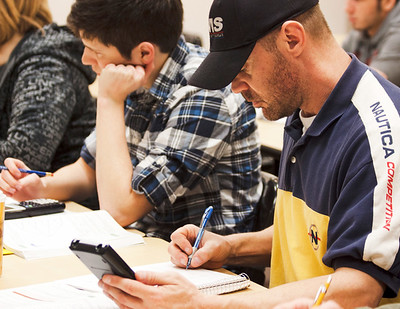Using member-reported data, LinkedIn says the average American adult will work for fifteen different employers in his or her lifetime. The same data shows that early-career workers will change positions four times in the first 10 years after graduation. Less certain are the number of careers a worker will see. The most common guess puts lifetime career changes about 3-5 times. It suggests that workers may need a lifelong learning plan.
If true, that means every third, fourth, or fifth new job could require a radically different skillset from previous assignments. It also means a consistent stream of adult learners. It seems like this represents an opportunity for community colleges, but it also requires them to play the long game.
In the past, a community college would train a worker for a career. The assumption was that the worker would remain in his or her chosen field. Without doubt, a worker could advance by taking on progressively more challenging responsibilities, gaining experience, or going into management. More recently, community colleges have attempted to apply “just-in-time” to worker training. A worker may need a few weeks or months of training to perform a particular job. When that job goes away, they theorize that the worker will return to school to retrain for a new job.
Lather. Rinse. Repeat.
Lifelong learning plan can keep students close
I will just say two things here. First, there is value in encouraging students to establish a lifelong learning plan. Second, lather-rinse-repeat is the wrong way for a community college to go about doing this. Lather-rinse-repeat is the short game. Train for a job that lasts 3-5 years, then come back to retrain for a new 3-5 year position.
Going to college is a time-intensive, money-intensive activity. In fact, it is an investment, and everyone should think of it that way. If a person is going to change careers 3-5 times in their lifetimes, they should always have a route planned to their next career. Such a plan should be complete with retraining options, funding, timing, networking, etc. Community colleges should be able to help people make, maintain, and update their lifelong learning plan.
Students should not leave a community college without knowing what else they can do with their degree. Or how many classes lie between them and their Plan B. For example, if a person knows that with four classes, they could pivot from their current career to a different line of work, the prospect of changing careers may not be as daunting.
Established learning plan can be invaluable
And not every career change is voluntary. Sometimes an unexpected job loss or life event can leave people confused about what they should (or can) do. Having a lifelong learning plan already in place makes it easier to begin to recover.
Funding is another thorny issue. Sometimes people do not advance their education because they think they cannot afford it. Two-thirds of Americans do not know what a 529 Education Savings Plan is. Of those who do, many (falsely) believe that this is a college account that parents open for their children. They do not know that adults can open 529 education savings accounts for themselves. Setting aside even $50 -$75 per month for a few years could easily fund their Plan B classes/expenses.
Many students do not understand their federal financial aid options, either. They may believe that they make too much money to qualify for financial aid. Or that they have exhausted their financial aid eligibility. Or they might simply not know how to access federal financial aid. A lifelong learning plan could make updated information available to them anytime.
WCC could accomplish this by creating in-person workshops and online tools to design and store complete educational contingency plans.
Behaving like an educational partner can provide authentic value to community members, regardless of their age or career stage. Preparing them for career changes (actively or passively) can ensure that they hit the ground running whenever necessary. Providing the tools to identify educational options would go a long way toward establishing an authentic lifelong learning relationship.
Photo Credit: Newman University , via Flickr










